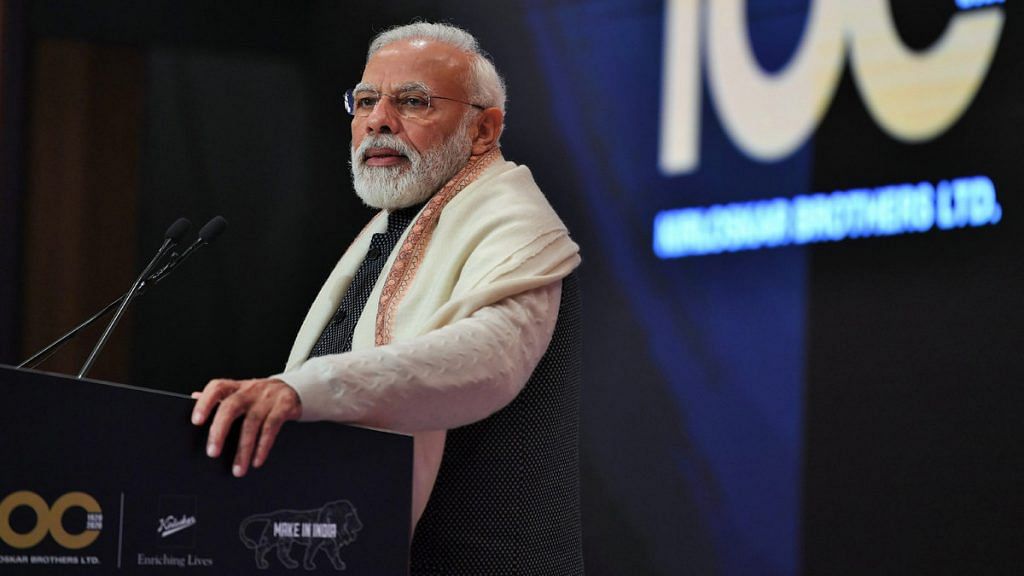Over the last month, a spate of cancellations and comments by foreign leaders on India’s domestic affairs, from the situation in Kashmir to the ongoing protests over the Citizenship (Amendment) Act or CAA, has put the international spotlight back on Prime Minister Narendra Modi’s larger-than-life image as a world leader.
Most startling have been Microsoft chief Satya Nadella’s comments on the CAA to BuzzFeed News, calling its implementation “sad”, adding, “I would love to see a Bangladeshi immigrant who comes to India and creates the next unicorn in India or becomes the next CEO of Infosys.” Later, Microsoft put out a slightly modified statement from Nadella. The words ‘Bangladesh’ and ‘sad’ did not feature in it.
Last Friday, one day after US ambassador to India Kenneth Juster returned from his two-day visit to the Kashmir Valley and Jammu, the US State Department put out its most critical tweet on the situation in the union territory since the scrapping of Article 370.
Calling the envoys’ visit an “important step”, the US said it was concerned about the “detention of political leaders and residents and internet restrictions” that had now entered its fifth month.
On the same day, 10 January, French President Emmanuel Macron called PM Modi and “discussed the situation in the region of Kashmir, which France continues to follow closely”.
Also read: India attracted the world once. But it wasn’t because of its ambition to be a Hindu Rashtra
Bangladesh draws a line
Over the weekend, Bangladesh deputy foreign minister Shahriar Alam cancelled his participation in Delhi’s high-profile Raisina Dialogue conference, making him the third Bangladeshi minister in the last one month to cancel his visit to India.
The Bangladesh foreign office said that Alam was accompanying Prime Minister Sheikh Hasina to the UAE, and that his inability to come to Delhi had nothing to do with Dhaka’s unhappiness over the Modi government’s determination to implement the Citizenship (Amendment) Act, which also targets illegal Bangladeshi immigrants.
But the Bangladeshi foreign minister A.K. Abdul Momen wasn’t so circumspect. Cancelling his visit to India mid-December 2019, one day after Home Minister Amit Shah told Parliament that Bangladesh was persecuting its minorities, especially Hindu women, Momen told PTI that “uncertainty in India is likely to affect its neighbours”.
Separately, Momen told the BBC’s Bengali service that “there are very few countries where communal harmony is as good as in Bangladesh. If he (Amit Shah) stayed in Bangladesh for a few months, he would see exemplary communal harmony”.
Bangladesh is especially upset by the fact that the Modi government has justified the passage of the CAA by clubbing it with Pakistan, from which it had a violent separation in 1971. Prime Minister Sheikh Hasina has gone to huge trouble to protect her Hindu minority, not only to distinguish herself from Khaleda Zia’s Bangladesh National Party (BNP), which was in power with the extreme Right-wing Jamaat from 2001-2006 and which certainly persecuted Bangladesh’s Hindus.
But since her return to power 10 years ago, Hasina has gone to a great deal of trouble to protect Hindu temples and ensure that the community feels safe. Bangladeshis say they are flabbergasted at being described as “termites” by Home Minister Amit Shah and not being publicly befriended by Modi.
Around the same time that Momen cancelled his Delhi visit in mid-December, Bangladeshi home minister Asaduzzaman Khan cancelled a trip to Shillong where he was supposed to pay tribute to Mukti Bahini guerrillas who fought alongside Indian soldiers in the 1971 war against Pakistan.
Also read: Modi govt’s trip for envoys to J&K exposes rift between home and external affairs ministries
The world takes a second look
Of course the biggest cancellation to India in recent weeks has been that by Japanese Prime Minister Shinzo Abe, who had to call off his India trip last December owing to the ongoing anti-NRC protests in Guwahati.
Certainly, Modi remains unfazed by domestic criticism of the CAA, although Bangladeshi criticism seems to have hit home. At a gathering at the Ramakrishna Mission headquarters in Kolkata’s Belur Math where he spent a night, Modi focused on the CAA being specific to Pakistan – it had made the world realise the persecution of minorities in that country, he said.
There was no mention either of Bangladesh or Afghanistan, both of whose Muslims are also sanctioned by the CAA.
Also read: Narendra Modi is losing his political mojo
But as soon as Modi left the Mission headquarters, the order distanced itself from the PM’s comments, saying it was strictly apolitical where brothers and sisters of different faiths lived like children of “the same parents”.
Significantly, this is the first month after a long time that Modi isn’t travelling outside the country – instead, the world is coming to India this week, via the Raisina Dialogue conference, with 12 foreign ministers in attendance, while Brazil’s Jair Bolsonaro comes to Delhi as chief guest at the Republic Day celebrations.
Certainly, the combination of Kashmir and the CAA protests is forcing the world to take a second look at India. At least, for the moment, Modi shows no signs of pulling back.
